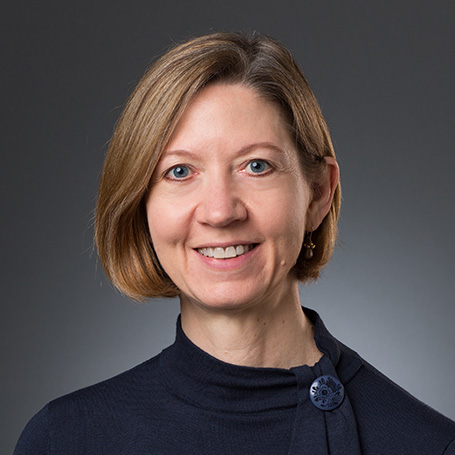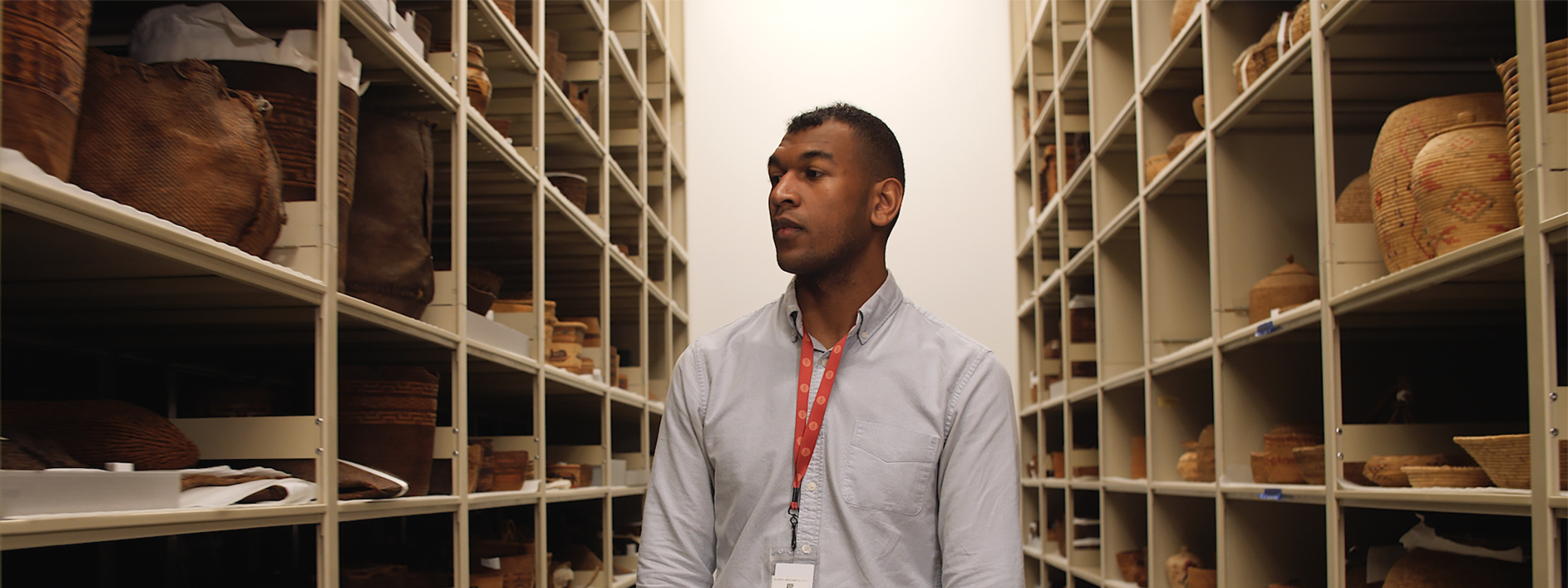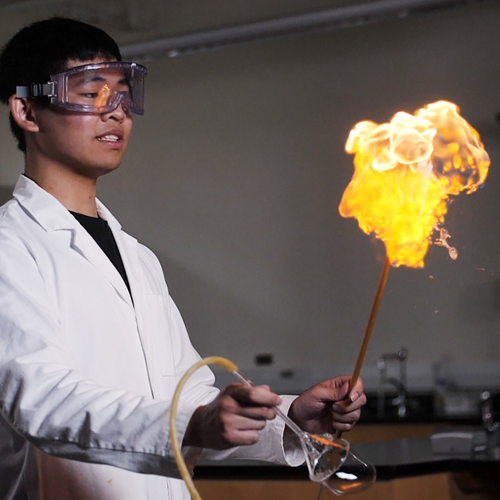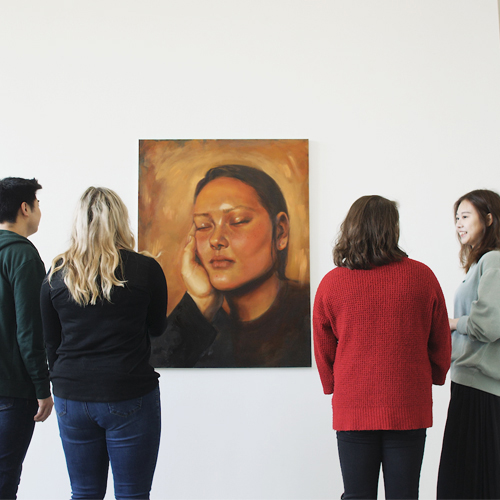Why study the Social Sciences?
In the Social Sciences Division, students study complex questions about societies and human behavior, including how human communities develop, how they are organized, and how they shape and are shaped by individuals. By studying social processes, students develop valuable leadership skills and real-world experience.
Research
Social Sciences students learn to use a wide range of sophisticated research tools — from statistical programming to laboratory analysis to field research. Faculty engage in collaborative research to address significant social problems in local, national and global contexts. The Center for Studies in Demography and Ecology, the Center for Social Science Computation & Research, and the Center for Statistics & the Social Sciences are examples of the many research centers in the social sciences that provide opportunities for students to work with faculty on interdisciplinary projects.

At the Intersection of STEM & Feminism
With interests in STEM and feminism, Simona Liao pursued a double degree in computer science and gender, women & sexuality studies. Using what she learned in both fields, she launched a mentorship program for women in China interested in STEM careers.
What do Social Sciences students do after graduating?
Students in the social sciences learn how people develop group identities, ensure cooperation, manage conflict, and regulate power through examination of economics, law, ethics, gender, race, and other areas. They pursue a wide range of careers including in journalism, politics, social justice, government, business and others that focus on individuals and societies.

My geography and history majors ask how … knowledge is made, who certain knowledge is created for, who is excluded, who is telling the stories, and why those stories are being told.
Alumni Career Paths
- Content manager
- Policy analyst
- Financial planner
- Human resources manager
- Legislative aide
- Community organizer
- Reporter
- Elected official
- Marketing coordinator
- Outreach coordinator
- Philanthropy officer
- Attorney
- Nonprofit manager
- Entrepreneur
- Business analyst
- Foreign service officer
Social Sciences programs
Whatever your interest, there’s a program in the Social Sciences Division for you.
-
Department of American Ethnic Studies
- B.A., American Ethnic Studies
-
Department of American Indian Studies
- B.A., American Indian Studies
- Certificate in American Indian and Indigenous Studies
-
Department of Anthropology
- B.A., Anthropology
- B.A., Anthropology of Globalization
- B.A., Archaeological Sciences
- B.A., Human Evolutionary Biology
- B.A., Indigenous Archaeology
- B.A., Medical Anthropology and Global Health
- B.S., Anthropology
- B.S., Archaeological Sciences
- B.S., Human Evolutionary Biology
- B.S., Medical Anthropology and Global Health
- M.A., Archaeological Heritage
- PhD, Anthropology: Archaeology
- PhD, Anthropology: Biological Anthropology
- PhD, Anthropology: Sociocultural Anthropology
-
Department of Communication
- B.A., Communication
- B.A., Communication: Journalism and Public Interest Communication
- M.A., Communication
- PhD, Communication
-
Department of Economics
- B.A., Economics
- B.S., Economics
- PhD, Economics
-
Department of Gender, Women & Sexuality Studies
- B.A., Gender, Women and Sexuality Studies
- PhD, Feminist Studies
- Graduate Certificate, Feminist Studies
- Graduate Certificate, Sexuality and Queer Studies
-
Department of Geography
- B.A., Geography
- B.A., Geography: Data Science
- M.A., Geography
- PhD, Geography
-
Department of History
- B.A., History
- B.A., History: Empire and Colonialism
- B.A., History: Race, Gender, and Power
- B.A., History: Religion and Society
- B.A., History: War and Society
- M.A., History
- PhD, History
-
Integrated Social Sciences
- B.A., Integrated Social Sciences
-
The Jackson School of International Studies
- B.A., International Studies
- B.A., International Studies: Asian Studies
- B.A., International Studies: Comparative Religion
- B.A., International Studies: European Studies
- B.A., International Studies: Jewish Studies
- B.A., International Studies: Latin American and Caribbean Studies
- M.A., China Studies
- M.A., Comparative Religion
- M.A., East Asia Studies
- M.A., International Studies
- M.A., Japan Studies
- M.A., Korea Studies
- M.A., Middle East Studies
- M.A., Russian, East European & Central Asian Studies
- M.A., South Asia Studies
- M.A., Southeast Asian Studies
- Executive M.A., International Studies
- PhD, International Studies
-
Department of Law, Societies & Justice
- B.A., Law, Societies, and Justice
- Graduate Certificate in Law Societies, and Justice
-
Department of Philosophy
- B.A., History and Philosophy of Science
- B.A., Philosophy
- B.A., Philosophy: Ethics
- Ethics
- Science, Technology and Society Studies
- M.A., Philosophy
- PhD, Philosophy
- PhD, Philosophy and Classics
-
Department of Political Science
- B.A., Political Science
- B.A., Political Science: International Security Option
- B.A., Political Science: Political Economy Option
- PhD, Political Science
-
Department of Sociology
- B.A., Sociology
- PhD, Sociology

The Statistics and Philosophy of Voting
Take a deep dive into the complexities of voting, from majority rule to election forecasting to gerrymandering to voting rights.

Public Speaking
Through introductory and advanced courses on public speaking, students can become a more effective and confident speaking in front of any group.

Cybersecurity in International Studies
Explore cybersecurity in a global context through courses developed through the Jackson School of International Studies' Cybersecurity Initiative.
Ready to dive into the Social Sciences?
Gain new and varied perspectives on societal issues and conduct research to better understand the complexities of who we are.
Divisional Dean of Social Sciences
Andrea Woody
Assistant
Meta Godsell206-616-2128
godsell@uw.edu




